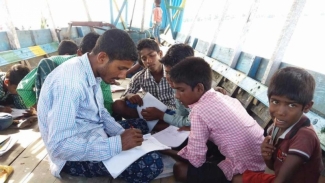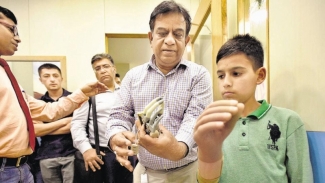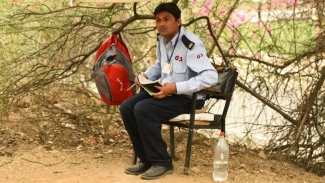
A total of 13 Intangible cultural heritage (ICH) elements from India have been inscribed till date on the UNESCO’s Representative List of the Intangible Cultural Heritage of Humanity.
The Ministry of Culture has appointed the Sangeet Natak Akademi, an autonomous organisation under the Ministry of Culture, as nodal office for matters relating to the intangible cultural heritage including for preparation of the nomination dossiers for the Representative List of UNESCO. The Sangeet Natak Akademi (SNA) accordingly makes necessary interaction with the stakeholders, experts/officials etc. prior to finalization of the dossier in respect of element identified for the nomination. Being the nodal office the SNA maintains a National Inventory of ICH elements and the inclusion of the identified element for UNESCO in the National Inventory/Register etc. of the applicant member state is also a pre-requisite for inclusion in the UNESCO’s Representative List of ICH.
It may also be mentioned here that the Ministry of Culture makes regular schemes as well as organisations make efforts towards preservation, protection and promotion of intangible cultural heritage in the country. Various autonomous bodies under the Ministry of Culture have comprehensive mandates in this regard and are functioning in various spheres of preservation and promotion of intangible cultural heritage and diverse traditions of the country. Some of the major organisations involved in preservation of propagation of ICH are named below:
- Sahitya Akademi, Lalit Kala Akademi, Sangeet Natak Akademi
- Indira Gandhi National Centre for the Arts
- National School of Drama
- Centre for Cultural Resources & Training
- Zonal Cultural Centres (seven in number)
- Indira Gandhi Rashtriya Manav Sangrahalaya
- Anthropological Survey of India
Apart from these, there are a number of schemes under the implementation of the Ministry of Culture for providing financial assistance to artists & institutions involved in promotion/propagation of the various forms of the intangible cultural heritage. In addition, the Ministry of Culture implements, since the year 2013-14 also, a scheme titled “Scheme for Safeguarding the Intangible Cultural Heritage and Diverse Cultural Traditions of India” with the aims and objectives of professionally enhancing awareness and interest in Intangible Cultural Heritage (ICH), safeguarding, promoting and propagating it systematically.
Representative List of the Intangible Cultural Heritage of Humanity
|
S.No. |
ICH Element |
Year of Inscription |
|
|
Tradition of Vedic chanting |
2008 |
|
|
Ramlila, the traditional performance of the Ramayana |
2008 |
|
|
Kutiyattam, Sanskrit theatre |
2008 |
|
|
Ramman, religious festival and ritual theatre of the Garhwal Himalayas, India |
2009 |
|
|
Mudiyettu, ritual theatre and dance drama of Kerala |
2010 |
|
|
Kalbelia folk songs and dances of Rajasthan |
2010 |
|
|
Chhau dance |
2010 |
|
|
Buddhist chanting of Ladakh: recitation of sacred Buddhist texts in the trans-Himalayan Ladakh region, Jammu and Kashmir, India |
2012 |
|
|
Sankirtana, ritual singing, drumming and dancing of Manipur |
2013 |
|
|
Traditional brass and copper craft of utensil making among the Thatheras of Jandiala Guru, Punjab, India |
2014 |
|
|
Yoga |
2016 |
|
|
Nawrouz, Novruz, Nowrouz, Nowrouz, Nawrouz, Nauryz, Nooruz, Nowruz, Navruz, Nevruz, Nowruz, Navruz |
2016 |
|
|
Kumbh Mela |
2017 |
This information was given by Minister of State (IC) for Culture and Minister of State for Environment, Forest & Climate Change Dr. Mahesh Sharma in a written reply in Lok Sabha on Monday.
Also read a post of 8th Dec 2017 of the news of 'Kumbh Mela' getting UNESCO listing
http://bharatmahan.in/positive-news/kumbh-mela-gets-unesco-listing-intangible-cultural-heritage











